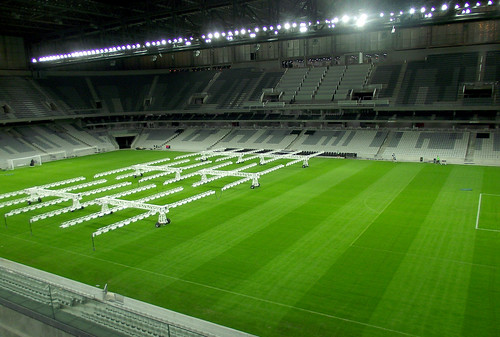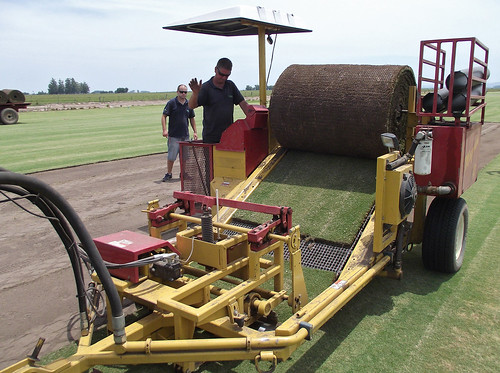
Here’s something to kick around: About half of the soccer matches at the FIFA World Cup in Brazil have been played on turfgrass bred jointly by USDA’s Agricultural Research Service (ARS) and the University of Georgia.
Turfgrass is a billion-dollar industry, creating jobs at nurseries, sod farms, golf courses and a variety of stadiums and other athletic facilities. ARS has been breeding warm-season turfgrasses since the 1950s, and has worked closely with scientists at the University of Georgia for decades. It’s been a particularly productive partnership and is responsible for producing turfgrasses that are used on some of the world’s top golf courses and athletic fields.
Of the 12 stadiums that are World Cup sites this year, three are using Tifway 419, a bermudagrass developed in Tifton, Ga., and released in 1960 by the late Glenn Burton, a pioneering ARS grass breeder. Three other stadiums are equipped with TifGrand, a shade-tolerant and extremely wear-resistant bermudagrass released jointly by ARS and the University of Georgia in 2008. Another Tifton-bred variety, TifSport, was used at the 2010 World Cup in Durban, South Africa.
Grass breeding is laborious and time consuming. Just ask Wayne Hanna, the former ARS grass breeder who developed Tifgrand with University of Georgia entomologist Kris Braman. Their TifGrand variety, for instance, is the result of crossing 27,000 grass lines and evaluating results of those crosses over more than 20 years in a diverse set of environments.
Part of the challenge is centered on finding the right mix of desirable characteristics, Hanna says. To work as an athletic turf, a grass variety must be able to withstand cleats, kicks, divots and the intermittent pounding of feet.

Equally important is shade tolerance, Hanna says. The edges of athletic fields in many stadiums will be partly shaded even on a sunny day, and grass is very sensitive to sunlight, requiring it for photosynthesis. “It also has to have a nice, dark green tint,” says Hanna, who is now a breeder at the University of Georgia in Athens.
The TifGrand sod being used at the World Cup was supplied by a Brazilian sod company and is being used in Arena Pantanal in Cuiaba, the Arena da Baixada in Curitiba and the Estadio Beira-Rio in Porto Alegre. The three stadiums using Tifway 419 are the Arena Amazonia in Manaus, Estadio das Dunas in Natal and Arena Pernambuco in Recife.

